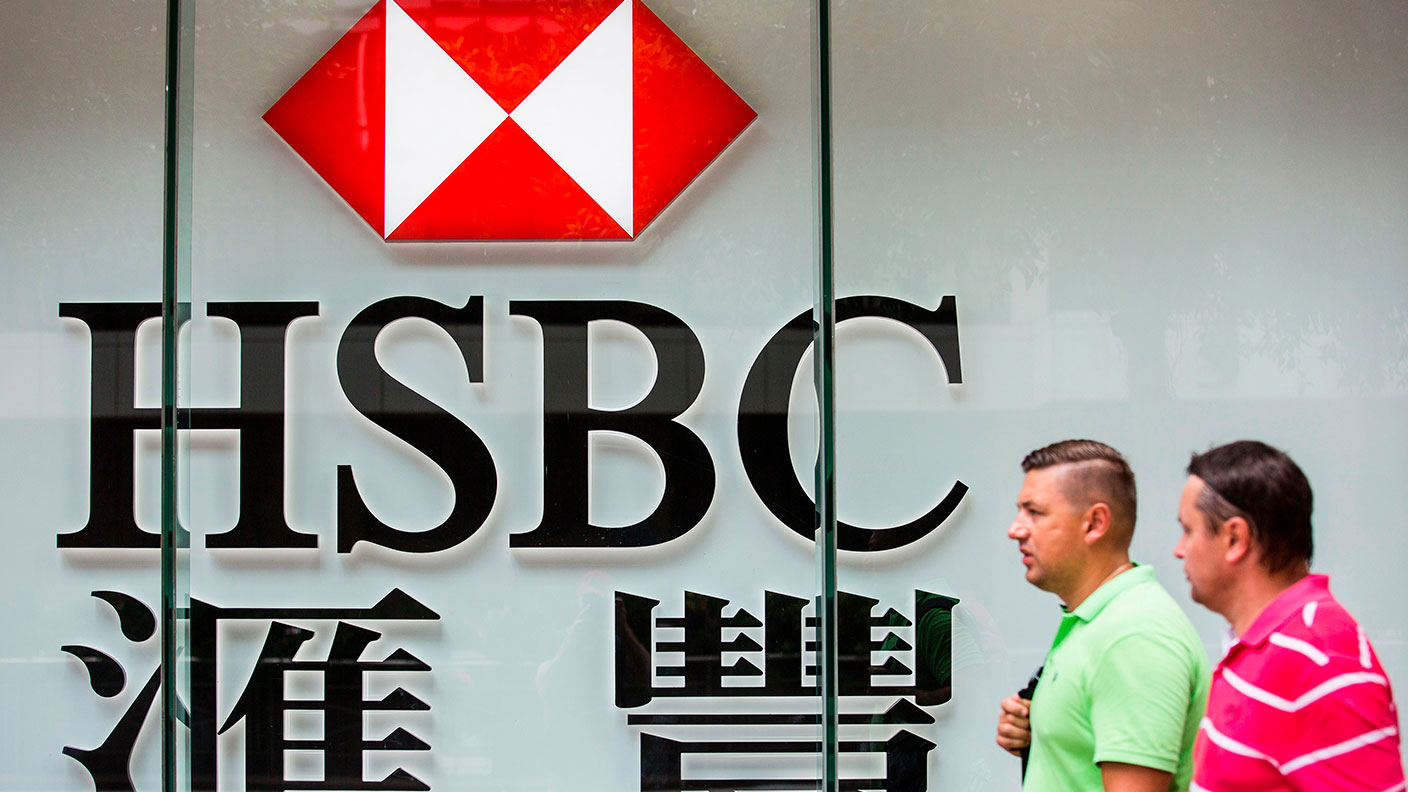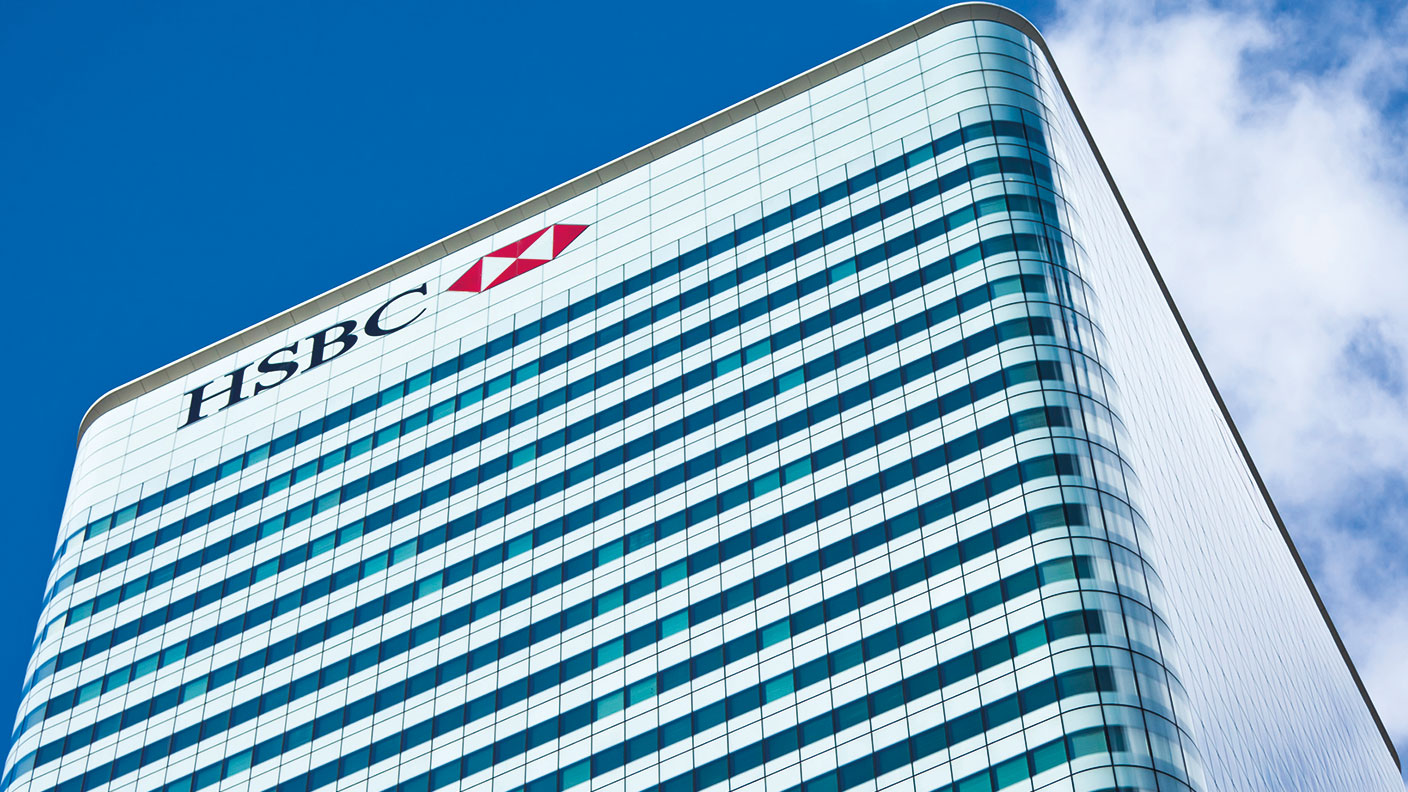HSBC looks like a cheap way to invest in Asia – should you buy?
HSBC has refocused its business towards Asia, and China in particular. If it can increase earnings, the bank looks cheap, says Rupert Hargreaves. So should you buy HSBC shares?


Get the latest financial news, insights and expert analysis from our award-winning MoneyWeek team, to help you understand what really matters when it comes to your finances.
You are now subscribed
Your newsletter sign-up was successful
Want to add more newsletters?

Twice daily
MoneyWeek
Get the latest financial news, insights and expert analysis from our award-winning MoneyWeek team, to help you understand what really matters when it comes to your finances.

Four times a week
Look After My Bills
Sign up to our free money-saving newsletter, filled with the latest news and expert advice to help you find the best tips and deals for managing your bills. Start saving today!
As it retreated from markets in the Americas and Europe, HSBC (LSE: HSBA) formally dropped its “world’s local bank” tagline in 2016.
Despite its global ambitions, Hong Kong has always been HSBC’s main market, with around 90% of group profits historically coming from its Asian business. And in recent years management has doubled down on China, shifting $100bn of capital to the region as the bank has exited other regions.
HSBC’s focus on China is producing mixed results
The results of the group’s new strategy have been slow to materialise. Revenues have stagnated over the past six years, and profits have been unpredictable. As an investment, the stock has been dead money since 2017 (even after adding in dividends). It has lagged the market by half over the past decade.
MoneyWeek
Subscribe to MoneyWeek today and get your first six magazine issues absolutely FREE

Sign up to Money Morning
Don't miss the latest investment and personal finances news, market analysis, plus money-saving tips with our free twice-daily newsletter
Don't miss the latest investment and personal finances news, market analysis, plus money-saving tips with our free twice-daily newsletter
Most of these challenges are a direct result of the firm’s new strategy. Sales have come under pressure as it exits markets, while the costs of the restructuring have eaten into profitability. That’s without considering the twin headwinds of economic uncertainty and ultra-low interest rates.
With interest rates on the up, HSBC’s outlook is beginning to improve. What’s more, even though economic certainty remains, it is in a far better position today to cope with volatility and instability than it was in 2018-2019.
Notably, the company has made significant progress cutting costs and has redoubled its efforts to reduce spending in the second half 2020. It is now beginning to reap the rewards. As other organisations struggle to offset rising wage pressure with higher prices, HSBC is expecting costs to remain flat this year as it cuts a further $2bn from operating spending.
In the first quarter, reported operating expenses declined by 3% as “continued growth in technology investment” offset inflationary pressures.
Lending growth continues to boost profits
Keeping a lid on costs will help HSBC outperform in a tough market. It has already increased its provision for bad loans in the year. It reported a profit before tax of $4.2bn for the first quarter, down $1.6bn due to “a net charge for expected credit losses and other credit impairment charges” as well as the costs of exiting the Russian market.
HSBC also reported a 4% decline in reported revenue to $12.5bn. Less capital market activity hit trading revenues at its investment bank, offsetting lending growth.
Still, lending is a bright spot for the firm. Consumer lending balances expanded to a net $9bn and net interest income increased in all global businesses. The bank’s net interest margin – the difference between the rate of interest the group pays to depositors and charges to borrowers – increased by 0.05% to 1.26% in the first quarter as overall lending income rose by 7.7% year-on-year.
The loan book is where HSBC has the potential to generate real growth over the next couple of years. With a common equity tier 1 ('CET1') capital ratio of 14.1% at the end of the first quarter, and an estimated $700bn in surplus deposits, it has the capital to grow lending volumes.
Investment banking can be a very profitable business, but it is also volatile, requires a lot of balance sheet capital and is very relationship driven. Well-connected (and well paid) bankers are needed to keep clients sweet.
The investment bank is an important part of HSBC’s business strategy, but lending to consumers and businesses is far more stable and predictable. These divisions also require less balance sheet capital and lending decisions can be executed (and serviced) by technology. The fees on a 25-year mortgage might pale in comparison to a $25bn merger, but the lender can process thousands of these lending decisions every hour using technology to reduce costs. This volume and the predictable interest income makes up for the smaller up-front fee.
HSBC is expecting a mid-single-digit percentage increase in overall lending growth this year, due to a combination of higher interest rates and more lending. Management also believes fees from its wealth management business will also recover when pandemic restrictions are lifted in Hong Kong.
If the bank can boost earnings, HSBC shares could be cheap
After half-a-decade of change and development, HSBC has a lot of scope to grow over the next few years. That said, economic uncertainty is already having an effect on profits, and with the outlook for the global economy only deteriorating, I would not rule out further negative developments.
Still, with the shares trading at a price/book (p/b) value of 0.7 and forward price/earnings (p/e) multiple of 9.9, HSBC looks cheap if it can continue to grow over the next few years. Its dividend yield sweetens the appeal. Analyst projections also have the stock yielding 4.3% this year, although management is warning that further share buybacks are unlikely as uncertainty persists.
Considering its valuation, the company could be a cheap way for investors to play the growth of the Chinese economy and rising interest rates. However, as uncertainty builds, some investors might prefer to seek protection elsewhere.
Get the latest financial news, insights and expert analysis from our award-winning MoneyWeek team, to help you understand what really matters when it comes to your finances.

Rupert is the former deputy digital editor of MoneyWeek. He's an active investor and has always been fascinated by the world of business and investing. His style has been heavily influenced by US investors Warren Buffett and Philip Carret. He is always looking for high-quality growth opportunities trading at a reasonable price, preferring cash generative businesses with strong balance sheets over blue-sky growth stocks.
Rupert has written for many UK and international publications including the Motley Fool, Gurufocus and ValueWalk, aimed at a range of readers; from the first timers to experienced high-net-worth individuals. Rupert has also founded and managed several businesses, including the New York-based hedge fund newsletter, Hidden Value Stocks. He has written over 20 ebooks and appeared as an expert commentator on the BBC World Service.
-
 Can mining stocks deliver golden gains?
Can mining stocks deliver golden gains?With gold and silver prices having outperformed the stock markets last year, mining stocks can be an effective, if volatile, means of gaining exposure
-
 8 ways the ‘sandwich generation’ can protect wealth
8 ways the ‘sandwich generation’ can protect wealthPeople squeezed between caring for ageing parents and adult children or younger grandchildren – known as the ‘sandwich generation’ – are at risk of neglecting their own financial planning. Here’s how to protect yourself and your loved ones’ wealth.
-
 HSBC stocks jump – is its cost-cutting plan already paying off?
HSBC stocks jump – is its cost-cutting plan already paying off?HSBC's reorganisation has left questions unanswered, but otherwise the banking sector is in robust health
-
 HSBC returns to cost-cutting plan
HSBC returns to cost-cutting planHSBC is set to revamp its commercial banking division – but will it come at a cost?
-
 Halifax: House price slump continues as prices slide for the sixth consecutive month
Halifax: House price slump continues as prices slide for the sixth consecutive monthUK house prices fell again in September as buyers returned, but the slowdown was not as fast as anticipated, latest Halifax data shows. Where are house prices falling the most?
-
 Rents hit a record high - but is the opportunity for buy-to-let investors still strong?
Rents hit a record high - but is the opportunity for buy-to-let investors still strong?UK rent prices have hit a record high with the average hitting over £1,200 a month says Rightmove. Are there still opportunities in buy-to-let?
-
 Pension savers turn to gold investments
Pension savers turn to gold investmentsInvestors are racing to buy gold to protect their pensions from a stock market correction and high inflation, experts say
-
 Where to find the best returns from student accommodation
Where to find the best returns from student accommodationStudent accommodation can be a lucrative investment if you know where to look.
-
 The top stocks and funds to buy according to DIY investors
The top stocks and funds to buy according to DIY investorsNvidia dropped out of Interactive Investor’s top ten most-bought stocks in January for the first time in six months as investors veered away from US megacaps
-
 The world’s best bargain stocks
The world’s best bargain stocksSearching for bargain stocks with Alec Cutler of the Orbis Global Balanced Fund, who tells Andrew Van Sickle which sectors are being overlooked.